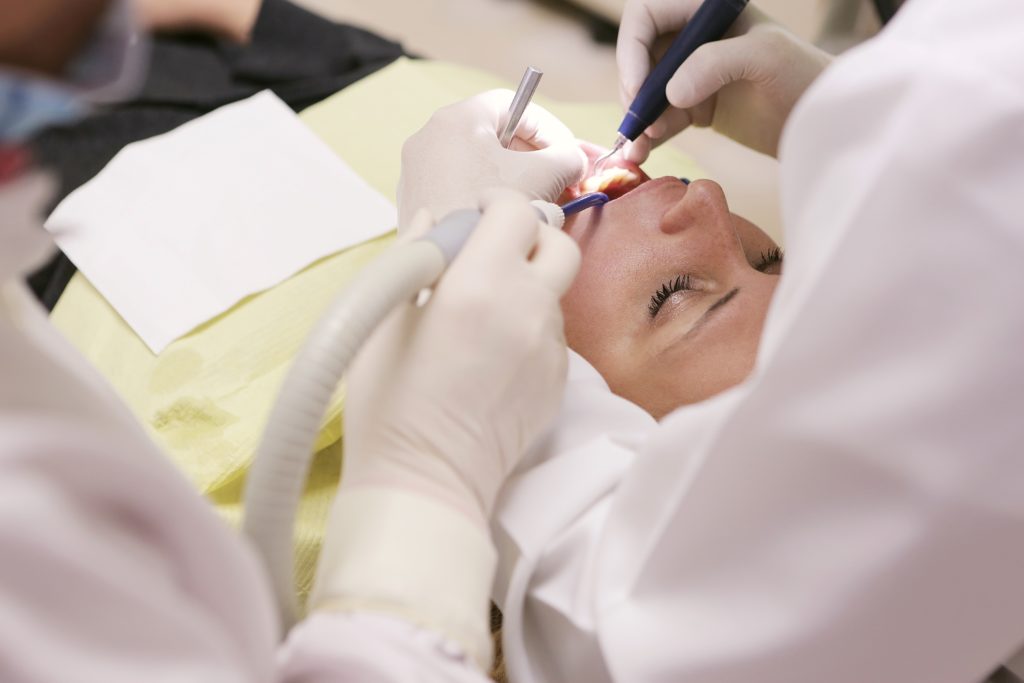All About Your Regular Dental Scaling
As a dentist, I am glad that more and more people are now aware of the importance of regular dental scaling.
If you are one of them who goes to check in at the dental clinic regularly, congratulation and well done!
If you are yet to be one of them, I hope this post will remind you that it is time to do so.
WHAT IS DENTAL SCALING?
Dental scaling is a procedure performed by the dentist to remove calculus that had been built up along the gumline. (In Malaysia, there is no dental hygienist and dentist is the one who performs the procedure).
A polishing will be performed also to help removing stain and smoothen the rough surface following dental scaling.
Hence, you always heard the name Scaling and Polishing.
In short, these two procedures help to keep your mouth clean, prevent gum problem and give you a beautiful and confident smile. =)
WHAT TOOL IS USED?
Dental Scaling
Ultrasonic scaler is used during the procedure.
The ultrasonic handpiece typically uses either magnetostrictive (elliptical motion)or piezo-electric (back-and-forth motion) technology. Magnetostrictive inserts operate at 25,000 to 30,000 cycles/second and, Piezo-electric inserts operate at 28,000 to 36,000 cycles/second.
The high vibration energy works effectively to knock the calculus and hence detach from the surface of your teeth.
The water comes together with the scaler also serve a few purposes during the procedure. First, of course it helps to flush away the debris. At the same time, it works to cool the tip of the ultrasonic scaler so that the heat created is not transmitted to the teeth. The tiny bubbles that are created also helps to disrupt the and rupture the bacteria, and changed the environment that is not suitable for bacteria to live.
Polishing
Traditionally, polishing is performed using prophylaxis cup and prophylaxis paste. It works to smoothen the rough surface following dental scaling. It also works to remove stain (not all, but to certain extend). It also contains fluoride that helps strengthening the teeth.
A newer way of doing polishing is through air polishing which use high pressurised water and fine sodium bicarbonate to blast on the plaque and stain to remove them. It is more gentle to the enamel layer yet more effective in removing stain compared to the traditional way of polishing.
ANY AFTER CARE TO TAKE NOTE?
Teeth sensitivity
One of the most common side effects that follow after dental scaling is teeth sensitivity.
Avoid taking very sweet and cold food or drink as it can trigger more sensitivity. Once the biofilm is built up again (typically takes a few days) then your teeth will feel normal again.
You can also consider using a sensitive toothpaste to ease the problem
Gum Bleeding
If there is any bleeding from the gum, it will normally stop within a day.
However, if you notice any unusual bleeding please refer back to your dentist to be sure.
Mouthrinse
Antibiotic mouth wash may or may not be prescribed depending on the condition of the gum.
Discuss with your dentist if you need a mouthwash to further clean up your mouth.
Oral hygiene
Do your best to minimise the deposition of calculus again.
Even though it is inevitable to have calculus, but keeping a good oral hygine helps to minimise it.
Discuss with your dentist if you are not sure if your oral hygine is good.
In a nutshell, flossing daily, brush twice a day with fluoridate toothpaste is necessary.
HOW FREQUENT SHOULD I DO THIS?
A general answer is 6 months. However, it depends on the overall condition of your mouth.
Someone that has calculus build up faster will need more regular check up , e.g. 4 months.
Someone that hardly has calculus build up can wait for 6 months or 9 months before seeing a dentist.
On top of how fast calculus built, someone that easily get dental caries will be called back for check up earlier than someone who never has any caries or filling.
The best thing is to work together with you dentist to decide what is the suitable timeline for your regular dental check up.
With Love,
Gwen Gan

